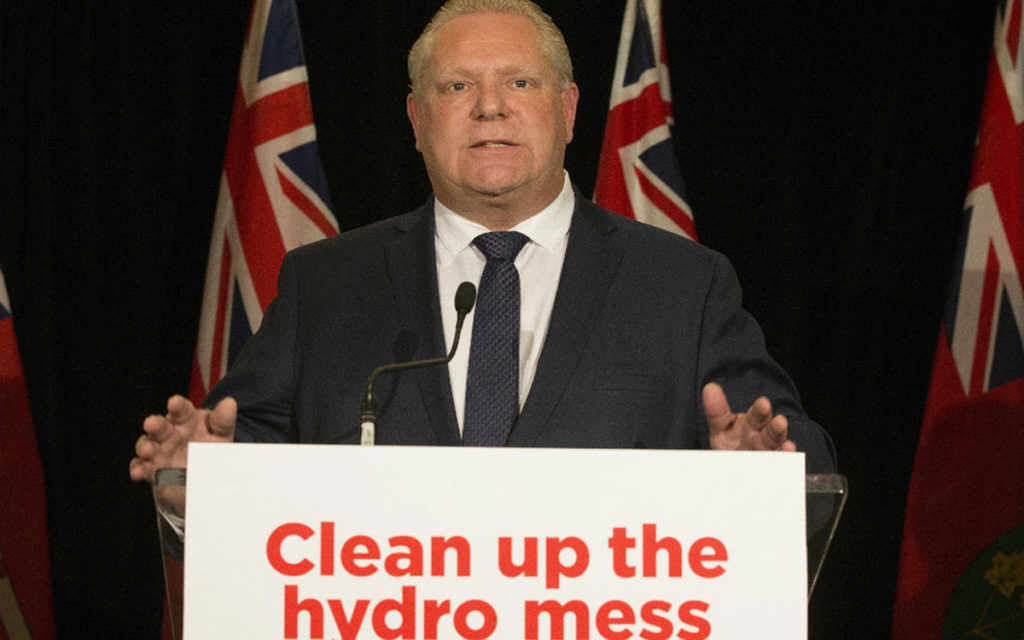
Premier Doug Ford takes first steps in fixing the province’s hydro mess.
After many years of mismanagement by the Ontario Liberals, the hydro issue was a key hot button for voters in the recent Ontario election, and deservedly so. Since 2006, hydro costs in Ontario have more than doubled with dubious if any beneficial environmental impacts, and rural areas of the province were hit especially hard. Businesses also suffered serious harm from the sky-high hydro rates, further damaging their ability to compete. During the election, all of the political parties agreed that major changes had to be made to the hydro system, although there was little agreement as to what those changes would actually look like. This past week, Premier Ford’s new government began to address this important and complex issue.
As promised during the election campaign, the CEO and Board of Hydro One have now stepped down, supposedly without major severance costs. Ford made a great deal of hay in the weeks leading up to the election by talking about the CEO as the “$6 million man”, but the reality is that in the massive money pit that is our hydro system, $6 million is a drop in the bucket. All employees of the various hydro-related entities in Ontario have been notoriously overpaid for decades, with very generous pensions that are seriously underfunded. Any meaningful savings in the operations of the hydro system will require much more than trimming the pay packets of some executives. That being said, getting rid of the CEO and Board sets an important precedent of a new direction for the utility and the industry as a whole.
Another important decision made this week was the cancellation of the White Pines industrial wind turbine project in Prince Edward County, albeit at a cost of about $100 million. This was one of many such projects that, despite being furiously opposed by the local community, the Liberals proceeded with anyway. Advocates of these wind farms were highly critical of this cancellation, even comparing it to the infamous Liberal gas plant cancellations. This is an absurd comparison, as the gas plant cancellations took place explicitly to win two contested seats in the 2011 provincial election, and there was still a need for the plants to be built. In contrast, the White Pines project would have added additional capacity to an electricity system that already has excess supply and the decision to cancel it was more substantive than political. Back in 2016, even the Wynne government suspended the procurement of any new renewable energy projects because there was significant excess capacity in the system and Ontario was absurdly selling off some of that excess at a loss to a number of US states.
These two recent decisions represent just a beginning to unscrambling the big, messy omelet that is the Ontario hydro system. A key problem going forward will be a lack of transparency in the system which was greatly worsened by the partial privatization of Hydro One by the Wynne government. What happened this week was a good start, but barely scratches the surface of what needs to be done to return our hydro system to being once again a competitive advantage for the province as it used to be, and not a drag on our economic competitiveness and a detriment to the welfare of all Ontarians.

She has published numerous articles in journals, magazines & other media on issues such as free trade, finance, entrepreneurship & women business owners. Ms. Swift is a past President of the Empire Club of Canada, a former Director of the CD Howe Institute, the Canadian Youth Business Foundation, SOS Children’s Villages, past President of the International Small Business Congress and current Director of the Fraser Institute. She was cited in 2003 & 2012 as one of the most powerful women in Canada by the Women’s Executive Network & is a recipient of the Queen’s Silver & Gold Jubilee medals.




















